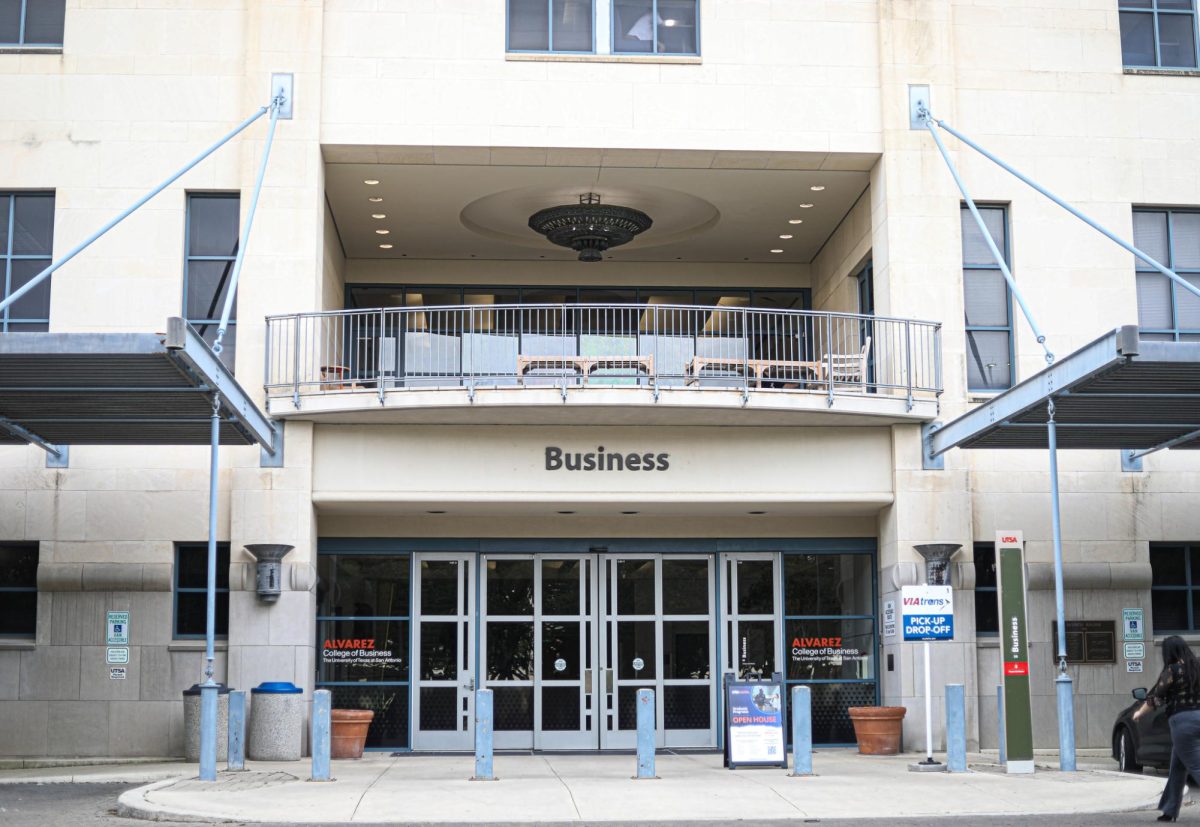
Mia Cabello/ The Paisano
“I’m almost like a librarian; I help students find information — like an assistant in a way. If I know the answer then I can share it,” said UTSA writing professor Lindsay Ratcliffe, the faculty adviser to The Green Society, a UTSA student organization.
The university has over 300 organizations, and each caters to a unique faction of the student body. Student organizations provide opportunities not otherwise available in a classroom setting.
UTSA Student Activities department requires that each student organization have a faculty or staff adviser.
However, the department does not stipulate the level of contribution from organization advisers; therefore, advisers contributions vary widely across campus groups.
“(An adviser) should not just be a signature on a paper, but a living interest that helps students organize; otherwise the organization will not work out,” said Professor Matthias Hofferberth, who serves at the faculty adviser to the Model UN organization.
Advising adds more responsibilities for professors and requires them to balance heavier workloads. Sometimes a professor who is also a faculty adviser may feel strain to balance lectures, classes and extracurriculars. Jacqueline Trejo, a member of the Catholic Student Association, describes the role of her organization’s adviser, Martha Fasci: “She used to come to a couple of meetings whenever she could. Her classes were on the same days, but she still made a really good effort.”
Although students receive the support of their adviser, the responsibilities to sustain the organization lie in the efforts of the organization student officers. Hofferberth elaborated that because student leaders remain with the organizations for a limited time until graduation, an adviser should offer guidance. The role of faculty advisers is to protect and foster long-term development in student organizations.
“You don’t want the students to feel like you’re running the show,” said Ratcliffe. “(The student activities) were clear that as an adviser you were meant to be available, a consultant, a resource and to know what’s going on.”
The structure of most student organizations challenges the unilateral exercise of authority present in the classroom. Faculty advisers should provide a clear channel of communication and support the organization.
“I’m trying to empower the students—to help them realize their own interests and not just tell them what to do,” said Hofferberth. “It’s not a hierarchical, ‘I’m the teacher you’re the student’; it’s ‘You’ve got an interest, and I’ve got an interest—lets work together on it.”
Trejo categorizes Fasci’s leadership — advising — style as very proactive; “she is supportive of events and gives us feedback,” Trejo said.
Without student organizations, said Hofferberth, “UTSA would look very different—much less diverse. This is why I like being a faculty adviser — it gives me another opportunity to reach out to students and connect with them on another level.”











